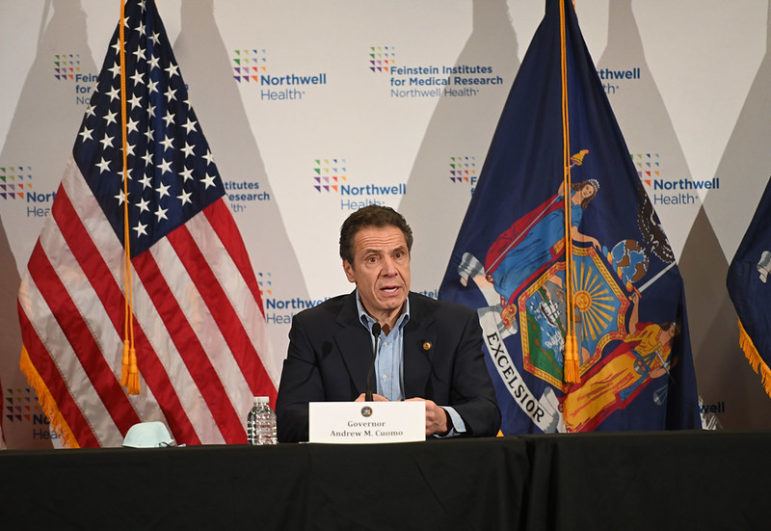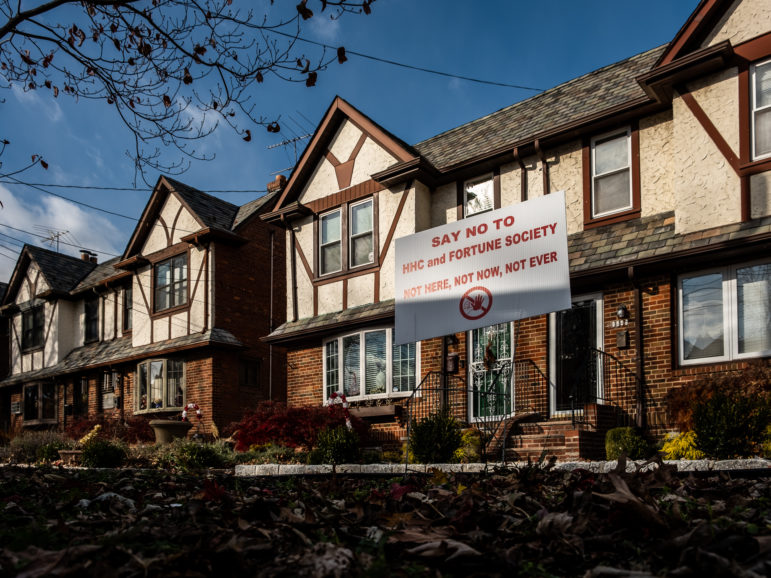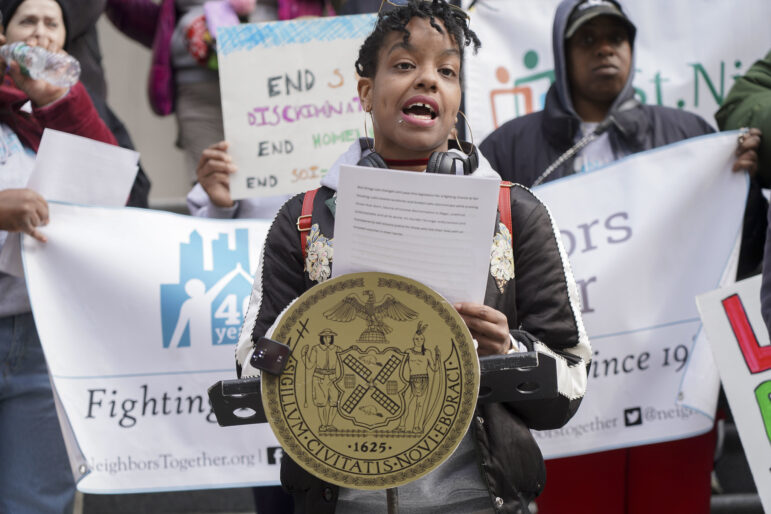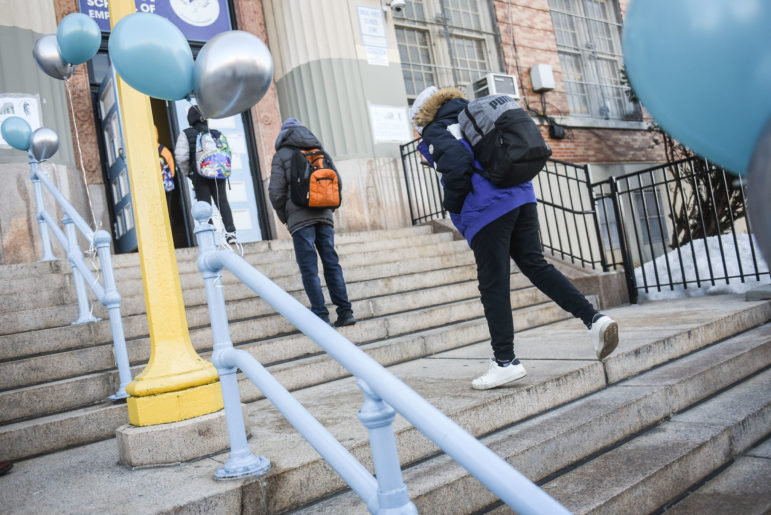
Kevin P. Coughlin / Office of Governor Andrew M. Cuomo
Gov. CuomoGovernor Cuomo has demonstrated true, national leadership in containing and managing New York’s COVID-19 outbreak. It’s now time for him and other state officials to lead our nation in an urgent humanitarian effort to release elder New Yorkers sequestered in virus-incubating prisons who are particularly vulnerable to falling ill and dying.
As a former commissioner of the New York State Board of Parole, and longtime criminal justice practitioner, I am particularly concerned about people in prison and their families during this scary time. Having visited and worked in prisons and jails for more than 40 years, I know the havoc this virus will wreak behind bars.
I am flummoxed that while many officials in New York have voiced concern for those who are court involved or detained in local jails, there is an eerie relative silence for those languishing in state prisons. Leading public health officials across the country have made clear that jails and prisons are dangerous incubators for COVID-19, placing those incarcerated and prison staff at huge risk. For those who are elderly and others with compromised immune systems, the World Health Organization has raised a particularly clarion call. This should also apply to the elderly in our prisons.
In New York State alone, there are roughly 9,500 people in state prisons who are aged 50 and older, and 2,672 aged 60 and older. They are most vulnerable to the illness and death this pandemic has already caused to many across the world.
As vulnerable incarcerated elders are confined to their cells with minimal or no access to outdoor space, few cleaning supplies or soap, no visitors, and limited phone calls, we are creating a humanitarian crisis by not pushing for their release. Prison dormitories and regional medical units that house from 30 to 300 incarcerated people at any given time will soon become hotbeds for the virus, and a prescription for certain death due to their vulnerability from years of inadequate treatment.
The only viable and humane solution is for the governor and State Parole Board to release incarcerated older men and women who are vulnerable to the virus, and many others, regardless of their current health status, who should have been released years ago.
 CityViews are readers’ opinions, not those of City Limits. Add your voice today!
CityViews are readers’ opinions, not those of City Limits. Add your voice today!
Cuomo has the unilateral power to release any one of the roughly 43,800 people currently incarcerated in New York State prisons through executive clemency. However, since the COVID-19 outbreak began, he hasn’t released a single person from prison. (He has ordered the release of 1,100 people held in local jails on parole violations.) With the stroke of a pen, he can align with growing public health and social justice consensus by reducing the state’s prison population. Doing so would save lives and reunite people with their families and home communities. It would also prevent a complete catastrophe.
Beyond the governor, the parole board must take similar action immediately. If I were still a member of the Parole Board, I would use this moment to exercise the Board’s power to grant release to any incarcerated person who is already parole eligible and particularly vulnerable to the virus. I would make decisions considering someone’s risk of violating the law if released instead of basing them on the original offense. Regardless of the system or practice, the Board must act now to institute whatever is needed to grant parole release to elders and others in prison.
I urge the governor to exercise real, national leadership by granting mass clemencies to New Yorkers in prison who are vulnerable to this virus. I also urge my former colleagues on the Parole Board to create a mechanism to immediately grant parole release to those at imminent risk of harm and death by way of the virus, including all people aged 50 and older and people with HIV, chronic illnesses, and otherwise compromised immune systems. The Board should also expedite parole interviews and immediately consider releasing all parole-eligible people who are due to see the Parole Board within the next 12 months.
COVID-19 creates the basis for a new standard of parole release that evaluates people for who they are today. This would prevent more death and suffering from this virus and the crisis of mass incarceration.
In the wake of a worldwide pandemic, we can no longer be afraid of compassion, forgiveness and empathy. I call on the governor and parole board to do the right thing.
Carol Shapiro is a former member of the New York State Board of Parole









4 thoughts on “Opinion: Cuomo’s Next Task as a National Leader is to Spare Prisoners from COVID-19”
Great suggestion by a former member of the Parole Board. Where was that thinking and action when she was an actual member of the board?
people in power need to work fast.. you cnt waste no time… thank you.
Governor Cuomo it’s time you demo.strste real aithentic leadership by using your power to grant clemency to those in prison who oppose no danger to our safety. Those 50 and over men and women deserve your consideration and mercy by not letting them become victims of COVID 19. Keeping them inside jeopardizes all of our health.
This epidemic is something that could not be foreseen and we have had little power thusfar to control it. Therefore, Governor Cuomo needs to grant clemency to all those 50 and older who are nearing the end of their prison sentences statewide to help control this pandemic. There is no time to waste. Too many people have died already. He has the power to save the lives of those that are otherwise overlooked and neglected. I urge him to take action now. There is no way to social distance in prison.